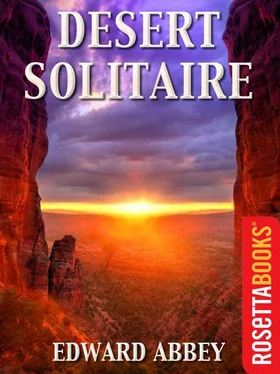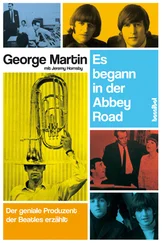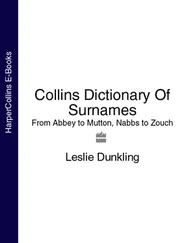Abbey, Edward - Desert Solitaire (Edward Abbey Series )
Здесь есть возможность читать онлайн «Abbey, Edward - Desert Solitaire (Edward Abbey Series )» — ознакомительный отрывок электронной книги совершенно бесплатно, а после прочтения отрывка купить полную версию. В некоторых случаях можно слушать аудио, скачать через торрент в формате fb2 и присутствует краткое содержание. Год выпуска: 2011, Издательство: RosettaBooks, Жанр: Старинная литература, на английском языке. Описание произведения, (предисловие) а так же отзывы посетителей доступны на портале библиотеки ЛибКат.
- Название:Desert Solitaire (Edward Abbey Series )
- Автор:
- Издательство:RosettaBooks
- Жанр:
- Год:2011
- ISBN:нет данных
- Рейтинг книги:4 / 5. Голосов: 1
-
Избранное:Добавить в избранное
- Отзывы:
-
Ваша оценка:
- 80
- 1
- 2
- 3
- 4
- 5
Desert Solitaire (Edward Abbey Series ): краткое содержание, описание и аннотация
Предлагаем к чтению аннотацию, описание, краткое содержание или предисловие (зависит от того, что написал сам автор книги «Desert Solitaire (Edward Abbey Series )»). Если вы не нашли необходимую информацию о книге — напишите в комментариях, мы постараемся отыскать её.
Desert Solitaire (Edward Abbey Series ) — читать онлайн ознакомительный отрывок
Ниже представлен текст книги, разбитый по страницам. Система сохранения места последней прочитанной страницы, позволяет с удобством читать онлайн бесплатно книгу «Desert Solitaire (Edward Abbey Series )», без необходимости каждый раз заново искать на чём Вы остановились. Поставьте закладку, и сможете в любой момент перейти на страницу, на которой закончили чтение.
Интервал:
Закладка:
Critics of my program will argue that it is too late for such a radical reformation of a people’s approach to the out-of-doors, that the pattern is too deeply set, and that the majority of Americans would not be willing to emerge from the familiar luxury of their automobiles, even briefly, to try the little-known and problematic advantages of the bicycle, the saddle horse, and the footpath. This might be so; but how can we be sure unless we dare the experiment? I, for one, suspect that millions of our citizens, especially the young, are yearning for adventure, difficulty, challenge—they will respond with enthusiasm. What we must do, prodding the Park Service into the forefront of the demonstration, is provide these young people with the opportunity, the assistance, and the necessary encouragement.
How could this most easily be done? By following the steps I have proposed, plus reducing the expenses of wilderness recreation to the minimal level. Guide service by rangers should, of course, be free to the public. Money saved by not constructing more paved highways into the parks should be sufficient to finance the cost of bicycles and horses for the entire park system. Elimination of automobile traffic would allow the Park Service to save more millions now spent on road maintenance, police work and paper work. Whatever the cost, however financed, the benefits for park visitors in health and happiness—virtues unknown to the statisticians—would be immeasurable.
Excluding the automobile from the heart of the great cities has been seriously advocated by thoughtful observers of our urban problems. It seems to me an equally proper solution to the problems besetting our national parks. Of course it would be a serious blow to Industrial Tourism and would be bitterly resisted by those who profit from that industry. Exclusion of automobiles would also require a revolution in the thinking of Park Service officialdom and in the assumptions of most American tourists. But such a revolution, like it or not, is precisely what is needed. The only foreseeable alternative, given the current trend of things, is the gradual destruction of our national park system.
Let us therefore steal a slogan from the Development Fever Faction in the Park Service. The parks, they say, are for people. Very well. At the main entrance to each national park and national monument we shall erect a billboard one hundred feet high, two hundred feet wide, gorgeously filigreed in brilliant neon and outlined with blinker lights, exploding stars, flashing prayer wheels and great Byzantine phallic symbols that gush like geysers every thirty seconds. (You could set your watch by them). Behind the fireworks will loom the figure of Smokey the Bear, taller than a pine tree, with eyes in his head that swivel back and forth, watching YOU, and ears that actually twitch. Push a button and Smokey will recite, for the benefit of children and government officials who might otherwise have trouble with some of the big words, in a voice ursine, loud and clear, the message spelled out on the face of the billboard. To wit:
HOWDY FOLKS. WELCOME. THIS IS YOUR NATIONAL PARK, ESTABLISHED FOR THE PLEASURE OF YOU AND ALL PEOPLE EVERYWHERE. PARK YOUR CAR, JEEP, TRUCK, TANK, MOTORBIKE, MOTORBOAT, JETBOAT, AIRBOAT, SUBMARINE, AIRPLANE, JETPLANE, HELICOPTER, HOVERCRAFT, WINGED MOTORCYCLE, SNOWMOBILE, ROCKETSHIP, OR ANY OTHER CONCEIVABLE TYPE OF MOTORIZED VEHICLE IN THE WORLD’S BIGGEST PARKINGLOT BEHIND THE COMFORT STATION IMMEDIATELY TO YOUR REAR. GET OUT OF YOUR MOTORIZED VEHICLE, GET ON YOUR HORSE, MULE, BICYCLE OR FEET, AND COME ON IN.
ENJOY YOURSELVES. THIS HERE PARK IS FOR people .
The survey chief and his two assistants did not stay very long. Letting them go in peace, without debate, I fixed myself another drink, returned to the table in the backyard and sat down to await the rising of the moon.
My thoughts were on the road and the crowds that would pour upon it as inevitably as water under pressure follows every channel which is opened to it. Man is a gregarious creature, we are told, a social being. Does that mean he is also a herd animal? I don’t believe it, despite the character of modern life. The herd is for ungulates, not for men and women and their children. Are men no better than sheep or cattle, that they must live always in view of one another in order to feel a sense of safety? I can’t believe it.
We are preoccupied with time. If we could learn to love space as deeply as we are now obsessed with time, we might discover a new meaning in the phrase to live like men .
At what distance should good neighbors build their houses? Let it be determined by the community’s mode of travel: if by foot, four miles; if by horseback, eight miles; if by motorcar, twenty-four miles; if by airplane, ninety-six miles.
Recall the Proverb: “Set not thy foot too often in thy neighbor’s house, lest he grow weary of thee and hate thee.”
The sun went down and the light mellowed over the sand and distance and hoodoo rocks “pinnacled dim in the intense inane.” A few stars appeared, scattered liberally through space. The solitary owl called.
Finally the moon came up, a golden globe behind the rocky fretwork of the horizon, a full and delicate moon that floated lightly as a leaf upon the dark slow current of the night. A face that watched me from the other side.
The air grew cool. I put on boots and shirt, stuffed some cheese and raisins in my pocket, and went for a walk. The moon was high enough to cast a good light when I reached the place where the gray jeep had first come into view. I could see the tracks of its wheels quite plainly in the sand and the route was well marked, not only by the tracks but by the survey stakes planted in the ground at regular fifty-foot intervals and by streamers of plastic ribbon tied to the brush and trees.
Teamwork, that’s what made America what it is today. Teamwork and initiative. The survey crew had done their job; I would do mine. For about five miles I followed the course of their survey back toward headquarters, and as I went I pulled up each little wooden stake and threw it away, and cut all the bright ribbons from the bushes and hid them under a rock. A futile effort, in the long run, but it made me feel good. Then I went home to the trailer, taking a shortcut over the bluffs.
ROCKS
The very names are lovely—chalcedony, carnelian, jasper, Chrysoprase and agate. Onyx and sardonyx. Cryptocrystalline quartz. Quartzite. Flint, chert and sard. Chrysoberyl, spodumene, garnet, zircon and malachite. Obsidian, turquoise, calcite, feldspar, hornblende, pyrope, tourmaline, porphyry, arkose, rutile. The rare metals—lithium, cobalt, berylium, mercury, arsenic, molybdenum, titanium and barium. And the basic rocks—basalt, granite, gneiss, limestone, sandstone, marble, slate, gabbro, shale.
Most of them can be found in this area. If you look hard enough and long enough. By this area I mean southeastern Utah: the canyonlands; Abbey’s country.
The various forms of chalcedony, for example, are strewn liberally over the dismal clay hills along Salt Creek. Here you will find tiny crystals of garnet embedded in a matrix of mica schist—almandite or “common garnet.” Fragments of quartzite are everywhere, some containing pure quartz crystals. You might find a geode: a lump of sandstone the size and shape of an ostrich egg, or sometimes much larger; slice it through with a diamond wheel and you may find inside a glittering treasure trove of crystals. A treasure not in money but in beauty. (Although I have been told by some rockhounds that they can make a better living peddling gemstones and curious rocks than they could mining gold.) In the washes are flintshards, edges scalloped with marks of secondary chipping—man-made. For the Indians were here too. Centuries ago. Trace the drainages upstream and look in shady alcoves under the canyon walls; there in the sand and dust, among the packrat storehouses and the litter of other animals you will find the mother lode, the place where the naked, indolent savages lounged about making jokes, pictures, and conchoidal fractures in flint. Flakes, scales, splinters of failed and incompleted points scatter the ground; if you are extremely lucky you may discover a complete and intact arrowhead. Possibly a spearhead. Some of them in translucent obsidian—volcanic glass, “Apache tears.”
Читать дальшеИнтервал:
Закладка:
Похожие книги на «Desert Solitaire (Edward Abbey Series )»
Представляем Вашему вниманию похожие книги на «Desert Solitaire (Edward Abbey Series )» списком для выбора. Мы отобрали схожую по названию и смыслу литературу в надежде предоставить читателям больше вариантов отыскать новые, интересные, ещё непрочитанные произведения.
Обсуждение, отзывы о книге «Desert Solitaire (Edward Abbey Series )» и просто собственные мнения читателей. Оставьте ваши комментарии, напишите, что Вы думаете о произведении, его смысле или главных героях. Укажите что конкретно понравилось, а что нет, и почему Вы так считаете.












